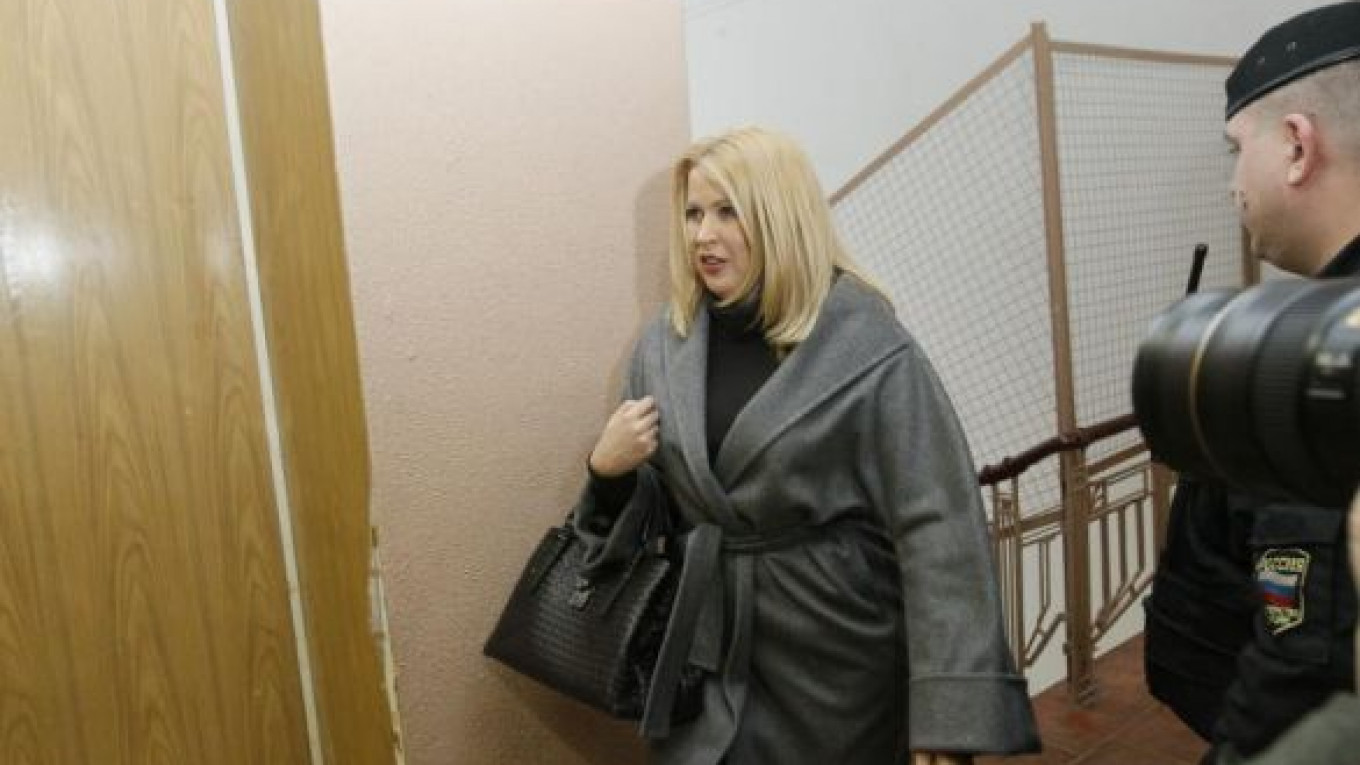A Moscow City Court has extended the house arrest of Yevgenia Vasilyeva, the primary defendant in the Oboronservis corruption case, until Feb. 23, 2014.
In her decision Monday, the judge said that Vasilyeva, the former director of the Defense Ministry's property department, is capable of absconding, destroying important materials and pressuring witnesses, Interfax reported.
An unidentified witness alleged in case files presented Monday that four witnesses were driven to the Moscow city limits last November and intimidated on Vasilyeva's orders. (See related .)
The judge rejected a defense motion requesting that, in the case of an extension, Vasilyeva be allowed to work four hours a day at a law office where she has recently been hired.
Vasilyeva's lawyer said that the defense plans to appeal the decision to extend her house arrest.
"Investigators have held me under house arrest for a year already, for some reason they have decided that they can extend the period of my arrest endlessly, constantly presenting the same materials," Vasilyeva said.
Her house arrest began in November last year shortly after President Vladimir Putin fired former Defense Minister Anatoly Serdyukov, who served with Vasilyeva on the board of directors of Oboronservis, due to allegations of mass embezzlement schemes in his ministry.
Investigators believe that Vasilyeva and her accomplices used Oboronservis, a company charged with selling off unwanted ministry properties, to sell prime real estate at below-market prices in exchange for bribes.
Vasilyeva was charged in October this year with 12 counts of fraud, money laundering and exceeding and abusing her authority.
A Message from The Moscow Times:
Dear readers,
We are facing unprecedented challenges. Russia's Prosecutor General's Office has designated The Moscow Times as an "undesirable" organization, criminalizing our work and putting our staff at risk of prosecution. This follows our earlier unjust labeling as a "foreign agent."
These actions are direct attempts to silence independent journalism in Russia. The authorities claim our work "discredits the decisions of the Russian leadership." We see things differently: we strive to provide accurate, unbiased reporting on Russia.
We, the journalists of The Moscow Times, refuse to be silenced. But to continue our work, we need your help.
Your support, no matter how small, makes a world of difference. If you can, please support us monthly starting from just $2. It's quick to set up, and every contribution makes a significant impact.
By supporting The Moscow Times, you're defending open, independent journalism in the face of repression. Thank you for standing with us.
Remind me later.






